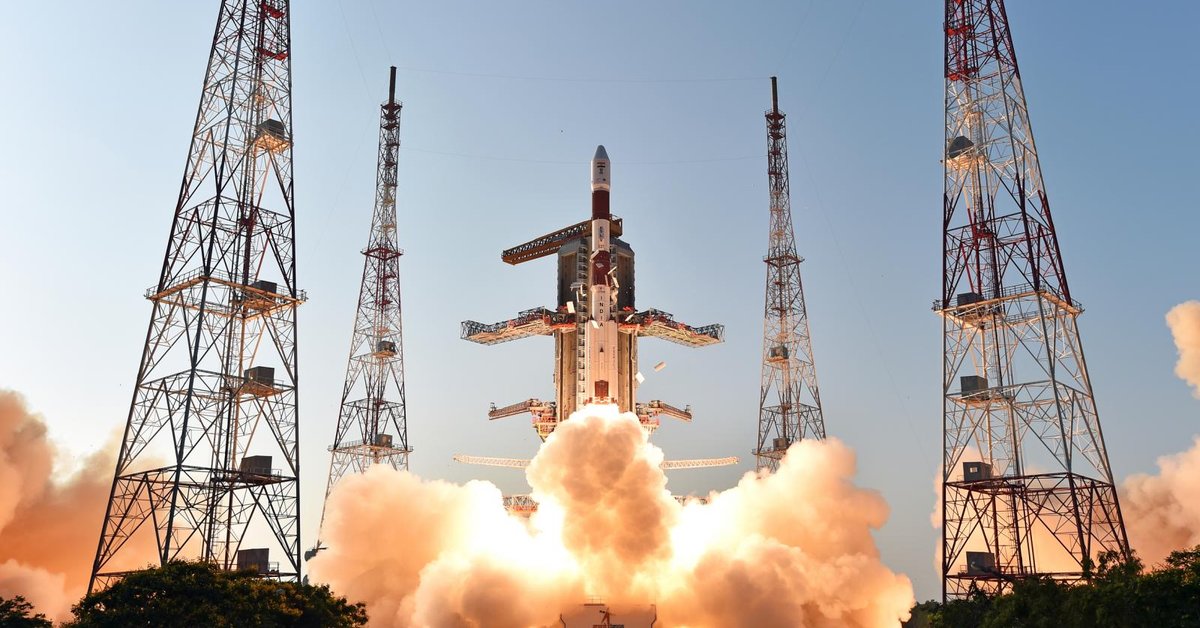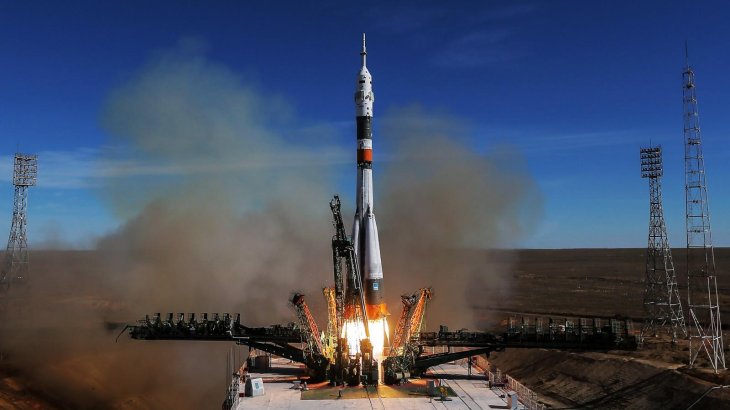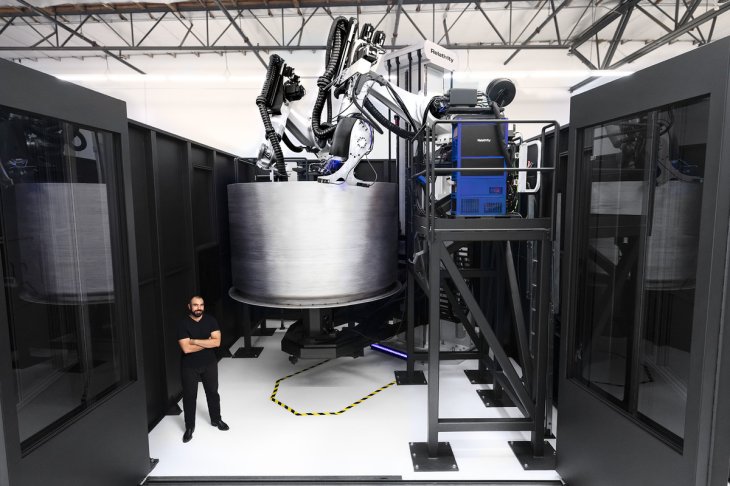India Is About To Have A Space Industry As Vibrant As That Of The U.S
Aadhya Khatri - Nov 09, 2020

India’s early commitment to the space industry has given ways to experienced experts and a vendor ecosystem
- The First Space Hotel In The World Will Welcome 400 Guests
- Startup Builds Vehicle With Soviets Tech To Collect Space Garbage
- World's First Space Hotel To Begin Construction In 2025 With Rooms For 400 Guests
Pixxel – a startup based in space industry is planning to send a constellation of Earth-observing satellites to space. They are hoped to provide valuable applications to various sectors, including agriculture.
The first satellite of the constellation onboard a Soyuz rocket was set to go this month but unfortunately, the launch was postponed to March 2021 because the main satellite on the Russian rocket wasn’t ready.

Companies that wish to send small satellites to space usually have to piggyback on rockets with large payloads.
According to Awais Ahmed – CEO and co-founder of Pixxel, since the company’s satellite is sharing a ride, it has no right to determine the timeline of the launch. He also said the company had also booked another ride onboard a SpaceX rocket launching in 2021. Pixxel is in talks with smaller companies providing launch vehicles for small satellites.
Technology has opened a whole new world of opportunities for Low Earth constellations for small satellites for commercial purposes. However, there are limited slots on available launch vehicles.
Small Satellites Is The Future
The larger demand has paved the way for the boom of dozens of startups making launch vehicles. Rocket Lab, one of such startups, has already proven its ability with the 15th successful launch of a payload with 10 small satellites. The company’s next mission is set to go later this month, carrying 30 small satellites.

India has two startups that have jumped on the bandwagon, Skyroot in Hyderabad and Agnikul in Chennai. The former achieved a milestone back in August with the success of the upper-stage engine of its vehicle.
The test proves the use of 3D-printed parts and new material to shorten development time and reduce the mass of the engine. The propellant allows the engine to restart again, meaning it can deploy multiple satellites in the same mission.
According to Pawan Kumar Chandana, CEO, and co-founder of Skyroot, the company applied three new technologies when making the propellant system so anything could go wrong. However, the test was better than expected.

He worked for ISRO during IIT Kharagpur’s campus placement. Chandana also took part in the development of GSLV Mark III, the space agency’s rocket that launched the Chandrayan-2 spacecraft.
SpaceX and Rocket Lab inspired Chandana and another ISRO’s employee - Naga Bharat Daka, to found Skyroot back in 2018. They have also recruited retired scientists from ISRO. One of the most prominent names is Gnanagandhi Vasudevan, the pioneer of the cryogenic rocket in India.
While the firm has a huge technological advantage, joining the space industry is a massive risk as there is neither funds are regulation for this field.
India’s early commitment to the space industry has given ways to experienced experts and a vendor ecosystem. Chandana said if they succeeded, they would be able to offer a more competitive price than international players.
Skyroot has had $4.2 million in funding so far with Mukesh Bansal – co-founder of Cure.fit and Myntra as an early investor.
Policy For The Space Industry
Regulatory is catching up with the emergence of the new industry. The government recently introduced a spacecom policy for privatization.
However, this is a highly competitive industry with over 100 startups from all over the world, some have had large investments.
Relativity Space – a startup based in the U.S was funded $140 million last month and is on its way to launch the world’s first 3D printed rocket.

Chandana said a shakedown is inevitable as the number of rocket companies is now larger than the market’s capacity. However, Skyroot’s successes might be evidence of its survival.
Skyroot’s quality control even extends to the vendors manufacturing components, the same companies that are supporting ISRO.
While the company nurtures a culture of paying attention to the smallest details, things can always go wrong because what they are doing is too complex.
The first year of the whole team involves debugging control and guidance software as well as rocket design.
Take the Raman upper-stage engine for example, the test was actually scheduled to take place months ago but then the plan was postponed because of a small leak, which took weeks to fix.
Chandana said there were over 100 companies making satellites nowadays and that was Skyroot’s market.
The potential is enormous with thousands of satellites being made to launch to space. However, there are uncertainties with business models, competition, and viability. ISRO will test its own vehicle for small satellites later this year in hope of grabbing part of the market.
China is right behind the US with its commitment to fund private ventures in the space industry. In September, Chinese company Landscape was funded $172 million. China can also offer a competitive price but since the U.S shun Chinese technology, Indian startups can cash in on this tension between Washington and Beijing.
>>> IISc & ISRO Scientists Develop Space Bricks For Habitation On The Moon
Featured Stories

Features - Jan 29, 2026
Permanently Deleting Your Instagram Account: A Complete Step-by-Step Tutorial

Features - Jul 01, 2025
What Are The Fastest Passenger Vehicles Ever Created?

Features - Jun 25, 2025
Japan Hydrogen Breakthrough: Scientists Crack the Clean Energy Code with...

ICT News - Jun 25, 2025
AI Intimidation Tactics: CEOs Turn Flawed Technology Into Employee Fear Machine

Review - Jun 25, 2025
Windows 11 Problems: Is Microsoft's "Best" OS Actually Getting Worse?

Features - Jun 22, 2025
Telegram Founder Pavel Durov Plans to Split $14 Billion Fortune Among 106 Children

ICT News - Jun 22, 2025
Neuralink Telepathy Chip Enables Quadriplegic Rob Greiner to Control Games with...

Features - Jun 21, 2025
This Over $100 Bottle Has Nothing But Fresh Air Inside

Features - Jun 18, 2025
Best Mobile VPN Apps for Gaming 2025: Complete Guide

Features - Jun 18, 2025
A Math Formula Tells Us How Long Everything Will Live
Read more

Mobile- Feb 16, 2026
Xiaomi Launches Affordable Tracker to Compete with Apple's AirTag
For users tired of ecosystem lock-in or high prices, the Xiaomi Tag represents a compelling, no-frills option that delivers core functionality at a fraction of the cost.

ICT News- Feb 15, 2026
X Platform Poised to Introduce In-App Crypto and Stock Trading Soon
X has been laying the groundwork for this expansion.

Mobile- Feb 17, 2026
Anticipating the Samsung Galaxy S26 and S26+: Key Rumors and Specs
The Samsung Galaxy S26 series is on the horizon, sparking excitement among tech enthusiasts.
Comments
Sort by Newest | Popular